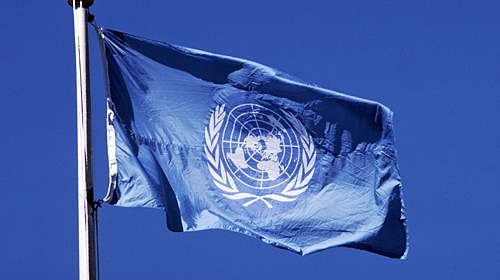How the Obama Administration Can Turn its Human Rights Promises into Concrete Action Against Racism


Today is the , an occasion when all nations of the world resolve to increase their efforts to combat racial and ethnic discrimination and promote human rights.
Here in the U.S., notwithstanding the fact that it is an election year, there is much that can be done by the Obama administration to make a tangible difference in the lives of racial and ethnic minorities.
Over the past three years, the administration has talked a good game about its human rights goals, proclaiming that "" and committing to "" on human rights.
Earlier today, the ACLU released a briefing paper and delivered remarks before the U.N. Human Rights Council in Geneva, Switzerland, calling on the Obama administration to make good on its human rights promises, and to do so before the end of the current presidential term. We're asking the administration to make tangible progress in specific areas where it has the power and authority to act and to act quickly.
Our briefing paper proposes eight implementation steps based upon prior U.S. commitments. Three of these steps highlight a need for a response to racial and ethnic discrimination:
1. It is well documented that racial disparity in criminal penalties persist in the American criminal justice system , particularly in the application of the death penalty and mandatory minimum sentences. In the long term, the ACLU has called on the U.S. to heed domestic and international calls to bring an end to the use of capital punishment. But immediately, the administration should fulfill its commitment to undertake a new federal study examining the racial disparities in the application of the death penalty and re-examine its support of existing mandatory minimum sentences and, at the very least, refuse to support any new mandatory sentences that are proposed.
2. Racial profiling is a widespread problem in the United States and it violates the U.S. obligations to uphold the (ICERD). Two immigration enforcement programs within the Department of Homeland Security (DHS) fuel serious concerns about racial profiling: one of these programs — known as 287(g) — allows state and local law enforcement officers to engage in immigration enforcement. The other is Secure Communities, under which everyone arrested and booked into a local jail has their fingerprints checked against Immigration and Customs Enforcement's immigration database. To fulfill America's commitment to combat racial profiling, the Obama administration should immediately require DHS to terminate Secure Communities and all agreements allowing local immigration enforcement. Moreover, the administration should require DHS to regularly collect and make public data surrounding any such programs involving state and local police in immigration enforcement; limit all such programs to individuals convicted of serious and violent deportable felonies; institute a robust racial profiling complaint and investigation procedure; and decline to initiate removal proceedings against individuals shown to have been subjected to racial profiling.
3. Combatting racial discrimination and promoting human rights requires the Obama administration to institutionalize a broad interagency process for implementing U.S. human rights obligations. To further this end, the U.S. government should heed the call of the that is transparent and accessible to civil society. In addition, in accordance with the , the administration should formally establish an interagency working group on ICERD, and establish a clear plan of action to implement the treaty domestically.
In the nine months between now and the end of this presidential term, there remains a short but real opportunity for the Obama administration to match its rhetoric with concrete action. In its before the U.N. Human Rights Council today, a representative from the U.S. delegation stated, "For the United States, the Universal Periodic Review is not something that occurs in Geneva every four and half years. It is an ongoing, daily tool through which to advance human rights."
We couldn't agree more. The extent to which the Obama administration walks the walk on human rights will impact its legacy and the reputation of the United States around the world.
Photo: UN Photo/John Isaac
Learn more about human rights: Sign up for breaking news alerts, , and .
